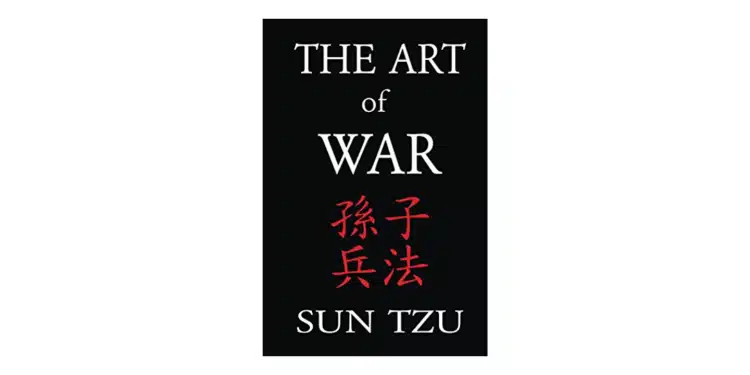Art of war by Sun Tzu
As someone running a business in a highly competitive landscape, it’s important to be ready for whatever comes your way. Sun Tzu’s “The Art of War” may not be a traditional business book, but its teachings are incredibly relevant. Although it’s a short read, the lessons contained within are profound and valuable.
One key takeaway is the importance of being adaptable. Circumstances are constantly changing, and it’s essential to modify your plans accordingly. If changing your approach will result in a better outcome, don’t be afraid to do so. Additionally, be careful when engaging in a commercial offensive against a competitor. Instead of focusing solely on price, emphasise the value of your solution.
Knowing your competition is crucial. If you understand their strengths and weaknesses, you can neutralise their advantages and gain a significant advantage. However, it’s also important to be flexible in your tactics. Just because a certain strategy worked in the past doesn’t mean it will be successful again.
Finally, your team is your greatest asset. Treat them with respect and empathy, but don’t hesitate to challenge them when necessary. Getting your sales team to tackle tough meetings first thing in the morning when they’re most alert can make a significant difference.
In conclusion, “The Art of War” offers valuable lessons that can be applied to any business in a highly competitive market. Be adaptable, know your competition, and treat your team well, and you’ll be well on your way to success.
Speaking for myself I will say I have probably read this book more than any other. On the one hand, its simplicity means that the lessons you are ready to receive on the first reading stand out, yet every time I read it, a new passage stands out to me. A must-read.



Get involved!
Comments